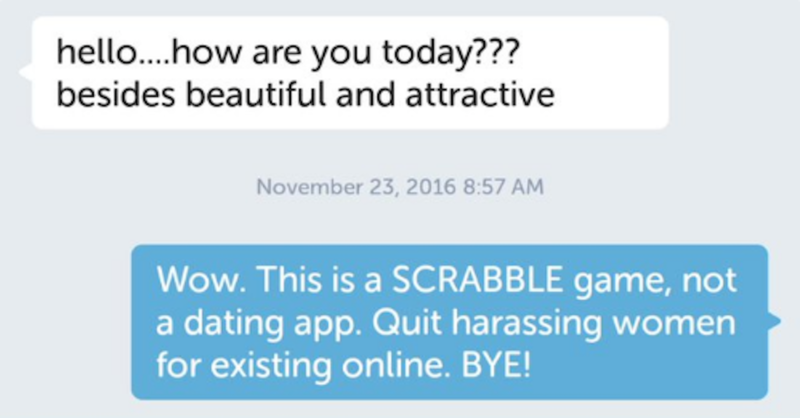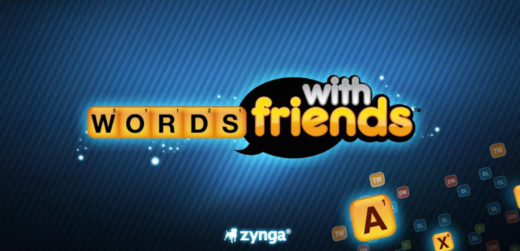Some of you might think that was an overreaction on my part. Perhaps so. But when I posted this screenshot to social media, aghast that I can't even play WWF without a man vocalizing what he thinks of my appearance, I was reasonably astonished to find that this type of non-game-related contact is not only common, but has been happening to a lot of women I know, inside the app, for a really long time. And some of their experiences are great examples of precisely why I responded so bluntly, so quickly. [Please note: I have omitted user names and last names to eliminate the chance of these women being targeted for further harassment.]
Here's a screenshot from my friend Tamra, demonstrating how a hearty greeting from a stranger can become threatening, if you don't immediately respond to it (even though it's the middle of the night):
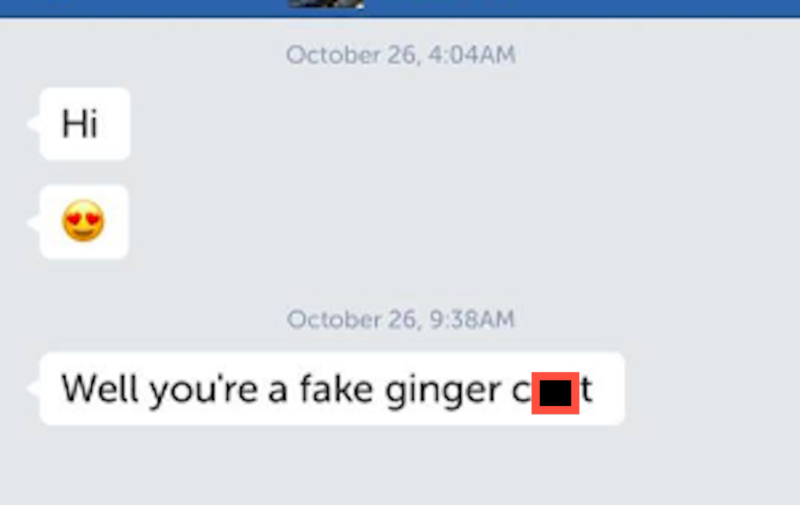
And here's one from my pal Caroline, demonstrating what can happen when you take the time to engage rationally with the stranger asking you questions:
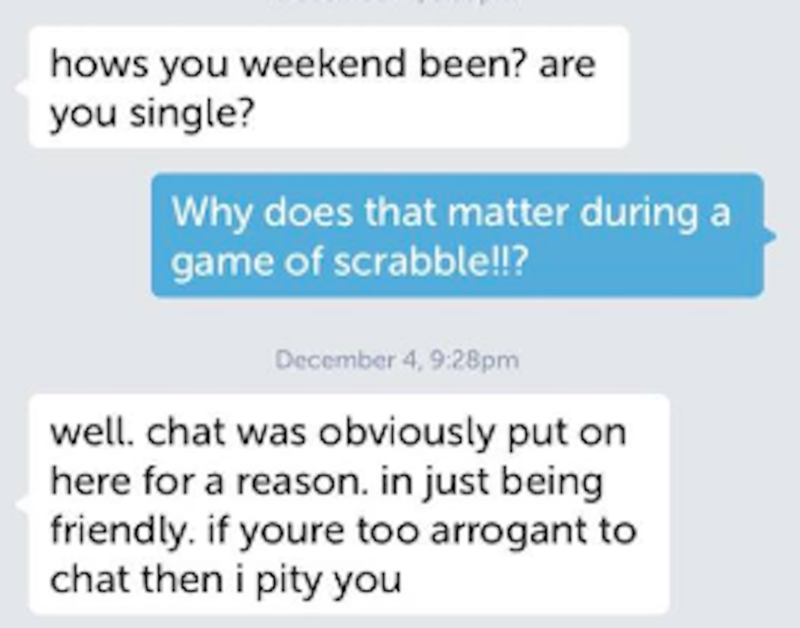
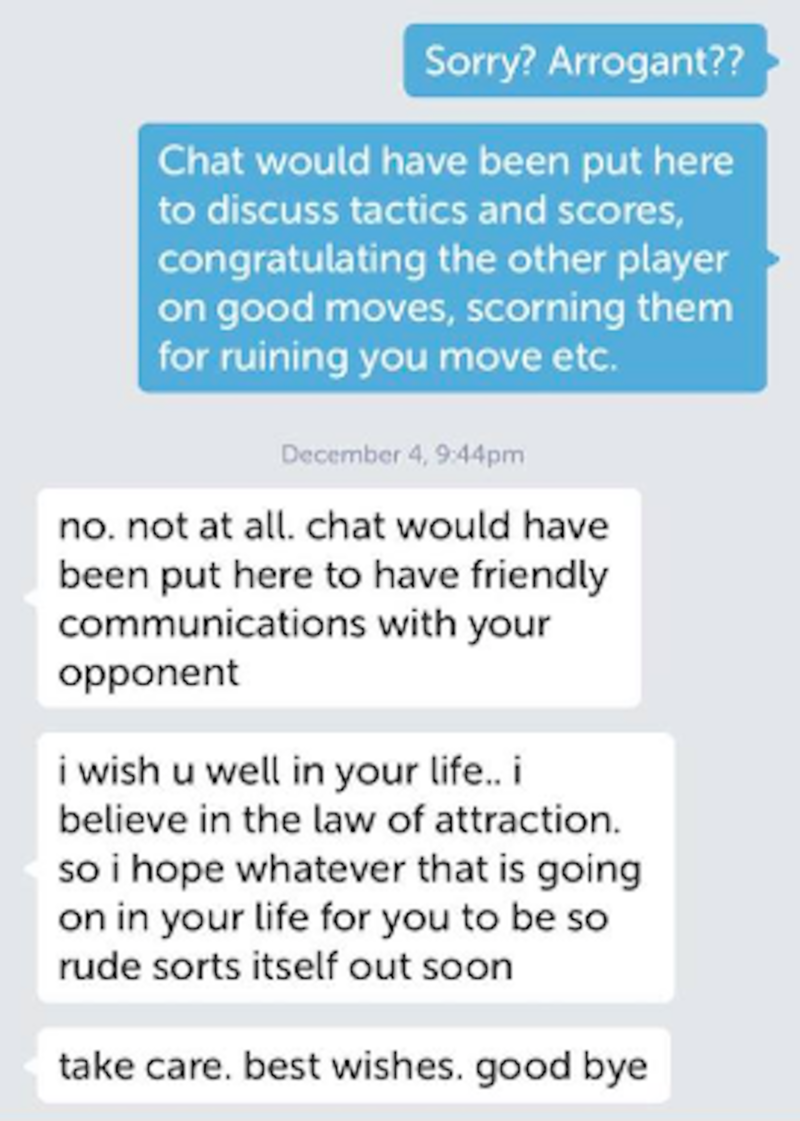
After sending these screenshots to me, Caroline told me with a shrug that because she is such an active WWF user: "I tend to block and delete them, but they happen most days."
Rebecca, another regular player who contacted me, said: "I refuse all random games now. One guy seemed okay at first, then got completely obsessed and weird. Others just send random sexual s**t..."
Nicky told me: "I deleted the app because, despite enjoying Words with actual friends, it was too depressing to start games with randos and have all the words be [sexually explicit]."
Sometimes, being actively aggressive is the only way to shut this type of behavior down. Here's my friend Alexis trying and ultimately failing to ignore a pest:
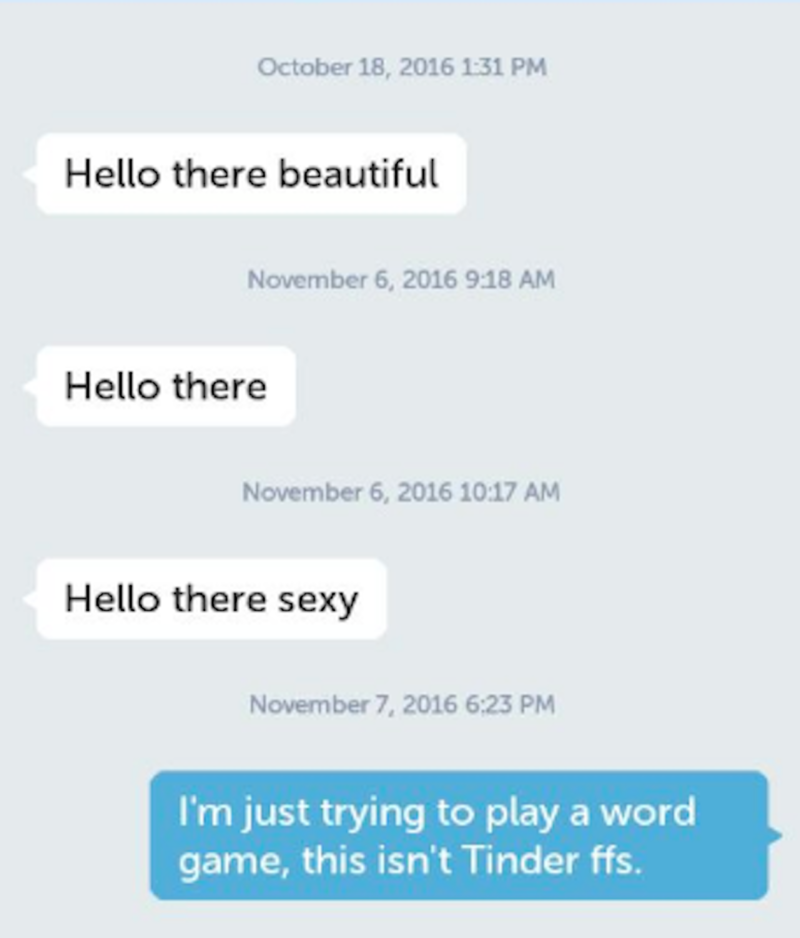
Another thing I discovered, just within my immediate friend group, is that sexual harassment on WWF isn't limited to merely irritating come-on lines and ugly insults.
"Two of the last four people WWF has paired me up with have had porn as their profile pic," my friend Julia told me. "I didn’t take screen shots. I just resigned both games immediately. The second one was an amateur shot of him (his name was graphic too) and a woman. I could see his penis and her vagina."
I was initially a little taken aback to find that my friends, for the most part, were not reporting many of these incidents to Zynga ("I just ignore it," Dani said, "because it happens constantly"), but it made a whole lot more sense once I discovered that blocking a player in WWF does not automatically remove them from your screen. The game that's already been started with that person will remain on your homepage, and the lines of contact between you (messages and "nudges") will remain open until you hit the "resign" button. And, as all WWF players know, the "resign" button comes with a clear warning: "End this game and it counts as a loss!"
To put it another way, Words With Friends currently has a blocking system that actively penalizes women for trying to get away from sexual harassers.
After trying and failing to remove the unwanted player from my games list without having to "resign" (and add a loss to my overall score), I attempted to contact Zynga to find out why. Not only was there no means to file a complaint within the app, but the form I filled out on the company's website prompted little more than an automatically triggered email and a few days of silence.
In the end, frustrated, I contacted Zynga as a member of the press, and asked them what they were doing to tackle the harassment problems inside WWF. I also asked them why the list of options when blocking another player were limited to things like spam and sexually explicit content, when straight-forward "unwanted contact" seemed to be a more accurate description of what I and many of my friends were dealing with.
The response from Zynga this time was swift and serious -- to the degree that, in a slightly bizarre turn of events, I was invited to discuss these issues over a conference call with three very concerned-sounding high-ranking Zynga employees, including Vaibhav Sahgal, VP of Games and head of Words With Friends.
In the course of the communications that followed, Zynga sent me the following statement:
"Upcoming feature roll outs [include]:
Enhancing the blocking of an opponent so that once an opponent has been blocked, they will not have a presence within the reporting player’s app, including their games list, leaderboard and friends list. This enhanced blocking has already started to ramp in Words With Friends and will be live for all players across Web, iOS and Android over the coming days.
We appreciated your suggestion to add a category for “Unwanted Contact” when reporting a player. We will be adding this category into the Words With Friends game across Web, iOS and Android in the next two weeks.
Looking ahead, we are evaluating additional measures, including reducing the number of steps taken by players in-game to report violations of our Terms of Service and Community Rules."
All of which is great news for the multitude of women who just want to play a word game in peace.
Ultimately, though, the fact that these steps even have to be taken within an app like Words With Friends is monumentally depressing. It is symbolic of how hard it is for women to get away from sexual harassment and unsolicited body-commentary, and how even the simplest of everyday activities can be interrupted by jarring interactions with male strangers.
In the end, there is one silver lining: it is easier to safely shut down sexual harassment within the realm of an app than it is to do so in a public space -- but this must be a team effort. We as individuals must take responsibility for reporting harassment, and web and app companies must be far more vigilant in monitoring who's getting blocked and why. Because if we can't eliminate harassment from an online word game, what hope do we have for all of the other places women exist?
